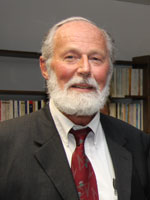Will the Taliban Rise Again?
by Dr. Robert D. Crane

Sometimes amidst an avalanche of bad news, there is a nugget of hope.
According to a front-page story in the October 23, 2014, issue of the New York Times, leaders among the new generation of Taliban support girls’ schools and international aid programs as part of their shift from combat to governing in liberated areas. The now aging Taliban of the immediate post-Communist era were brainwashed products of Saudi orphanages. They are not the voices of the future.
America has been associated with combat and chaos for more than a decade, so the average Pushtun wants peace and security through a Pushtun government, which means de facto Taliban, responsible for a large part of what geographically is now known as Afghanistan and Pakistan.
In the next phase, for only a few billion dollars, Qatar has the opportunity to serve as a middle-man to assure that the $30 trillion dollars of rare mineral resources there are owned by every resident of this area through equal individual shares of stock in a land bank, which will set the terms for access, development, and down-stream marketing by multi-national corporations, including individual share ownership in the global operations of these corporations. The issue is own or be owned.
The hope is that a Central Asian confederation based in Pushtunistan can provide the world’s best model of South-South cooperation in the pursuit of peace, prosperity, and freedom through compassionate justice.
Another model could be in Shams, known geographically as Southwest Asia, including what nowadays is called Iraq and Syria, where every Kurd, Sunni, and Shi’a could own an equal, individual share of stock in a land bank that, in turn, would own all the oil and gas resources.
A still better model would be Qatar’s purchase of 100% ownership of the large oil and gas resources off the coast of Gaza and Israel, so that this could be privatized through a land bank owned equally by every resident of the old mandate Palestine, with the condition that profits can be withdrawn only to finance individual ownership of productive economic enterprises.
The nugget of hope is that such economic cooperation could lead the way to an Abraham Federation, not One State, not Two States, but No States. The details within an Islamic framework are given most recently in my article, “The Metalaw of Holistic Haqq: Toward a Just Third Way in the Holy Land”, Sacred Web: A Journal of Tradition and Modernity, Summer, 2014, No. 33, pp. 101-119.
From a Jewish perspective this third way, both economically and politically, are best given in Norman Kurland’s articles dating back to the 1970s. These are included in the webpage of his Center for Economic and Social Justice, a think-tank that he and I founded in 1984 to orchestrate Ronald Reagan’s Presidential Task Force on Economic Justice, which was designed to combat the spread of Soviet Communism in the Americas and of any similar ideological threat in the future.